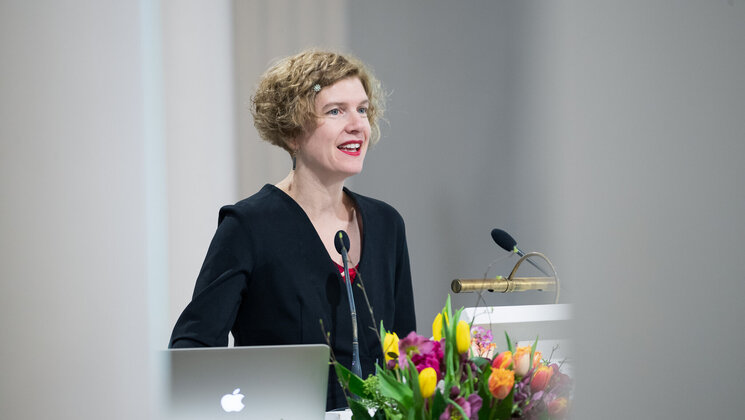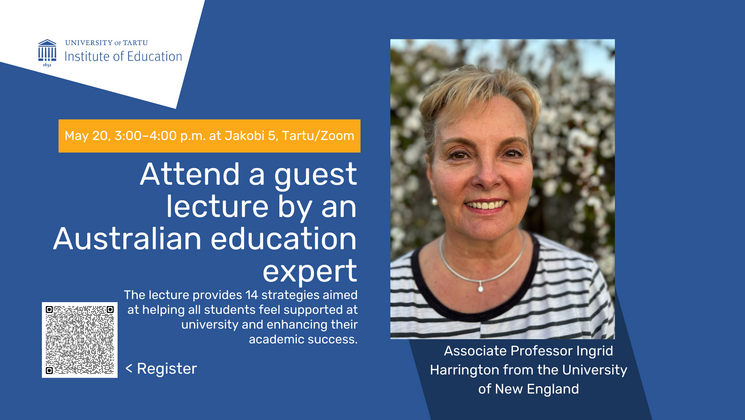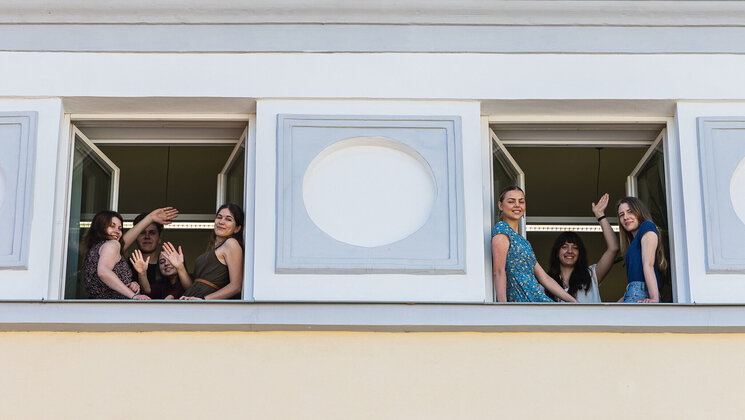Professor of Political Theory Eva Piirimäe gives her inaugural lecture on the history of self-determination of peoples
On Thursday, 10 April, at 16:15 in the university assembly hall, Eva Piirimäe, Professor of Political Theory at the University of Tartu, gives her inaugural lecture (in Estonian) on the self-determination of peoples in historical perspective.
The self-determination of peoples is one of the basic concepts of modern politics. In its broadest sense, it refers to the right of each people to freely shape its political, social, economic and cultural development. It can be linked to ideas of democracy and national sovereignty, and is a central principle of international law. The “Manifesto to All the Peoples of Estonia” (1918) proclaimed Estonia an independent democratic republic “by virtue of the right of self-determination of peoples”. This right was also mentioned in the 1920 Tartu Peace Treaty between Estonia and Soviet Russia.
But how and where does thinking about the ideal of self-determination of peoples begin? What have been its main arguments for and against? Why has self-determination also been called a dangerous illusion? Can we even speak of a single idea of self-determination of peoples?
In her inaugural lecture, Eva Piirimäe will look at the philosophical background and development of the principle of self-determination of peoples, based on her research and using historical examples. “Its 18th-century roots and main forms will be discussed. I will focus on the uses of the concept in the first half of the 20th century and also on how the principle was understood by representatives of minority nations (specifically Baltic Germans) in Estonia and Latvia. I will also discuss how the ideas of self-determination and cultural autonomy are related and how they have been used to both strengthen and undermine nation-states,” said Piirimäe.
According to the professor, there is still no complete agreement on what a nation is and what self-determination consists of. “Unfortunately, the language of self-determination can therefore be used for contradictory purposes. Take, for example, how, in Ukraine’s current military self-defence, we can and must speak of the right of self-determination of the entire Ukrainian people, while the aggressor Russia has supported both verbally and militarily the “right of self-determination” of the Autonomous Republic of Crimea and the so-called “people’s republics” of Donbass, i.e. the right to secede from Ukraine and join Russia,” said the professor. Paradoxically, self-determination is thus both an empowering and a divisive principle, although it is also possible to identify cases where it is hypocritically exploited. Russia’s argumentation is one such example.
The inaugural lecture aims to provide some reference points to help navigate the complex history of the idea of self-determination of peoples. Finally, the professor will reflect on why the concept of self-determination, despite its ambiguity and many abuses, is still used and needed.
Eva Piirimäe defended her doctoral degree at the University of Cambridge in 2006 and has since worked at the University of Tartu as a post-doctoral fellow, senior research fellow and associate professor. In 2016/2017, Piirimäe was a Visiting Scholar at Harvard University and a Visiting Associate Professor at Yale University. From 2021 to 2023, she was the Vice Dean for Research and Development at the University of Tartu Faculty of Social Sciences. Since September 2024, Piirimäe is Professor of Political Theory and head of the doctoral specialisation in Political Science.
Piirimäe’s research interests include theories of statehood, nationalism, international peace, collective self-determination and political, social and moral psychology from the Enlightenment to the present day. Piirimäe’s monograph “Herder and Enlightenment Politics” (Cambridge University Press, 2023) has gained international recognition, including the István Hont Book Prize for the best book on intellectual history published in 2023.
Piirimäe has (co-)edited several collections and special issues, published numerous articles in international collections and journals, edited translations of classical texts and written afterwords to them. She has been active in organising events of her specialisation and has been a keynote speaker at international conferences. She was the principal investigator of the five-year research project of the Estonian Research Council entitled “Self-Determination of Peoples in Historical Perspective” that ended in 2024. Last year, she was a nominee for the national research award in humanities.
The aim of the inaugural lecture is to give the new professor an opportunity to introduce herself, her specialisation and field of research. At the end of the public lecture, the audience will be able to ask the professor questions. Everyone interested is welcome. A live webcast will be available on UTTV.






